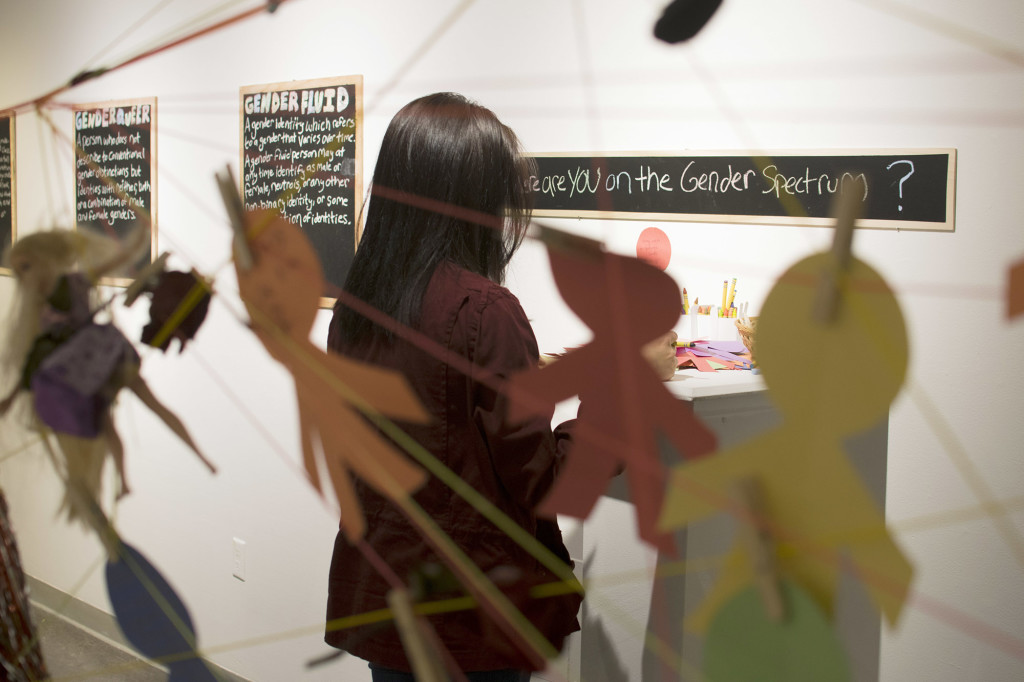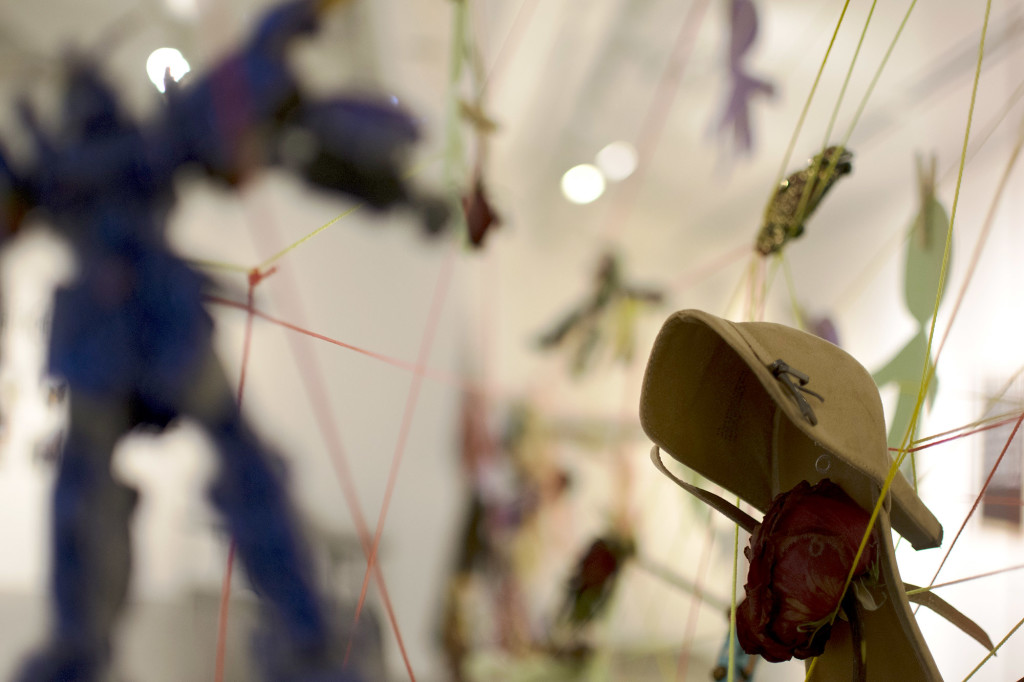Art is not simply meant to be looked at, but experienced in its entirety and this year’s artwork at the “In Your Face” art show demands its audience to delve further beneath the surface.
The “Social Issues Through the Arts” course, taught by Professor Deborah Lawrence in the Master of Fine Arts program, has students address justice and social issues through artistic expression. The pieces are intended to be bold and blunt, regardless of the constraints society tries to enforce in keeping political opinions away from the arts.
“Why be subtle? Anyone can do that, lots of art does that,” Lawrence said. “I’m asking [my students] to really be straightforward.”
Comprised of three installations, the pieces in the show focus separately on racism, misogyny and gender norms. Lawrence employs didactic art through her class, an art form that not only educates others but encourages social engagement.

Observers were given a chance to put themselves on the gender spectrum with paper cut-out figuresitalicized.
“The idea of art that teaches is not very popular in the USA because we’re too busy being narcotized and lulled by commercialism,” Lawrence said. “We don’t want to have to think about these difficult issues so we want art that doesn’t remind us.”
The process began with a conversation on issues that mattered to the class the most. Once these issues were narrowed down democratically among them, the students were able to choose which issue they wanted to help craft into a masterpiece.
Second year MFA students Elena Shernock, Aimee Zhou, Angela Neubauer and Devin Grimm put together the piece “Genderfucked,” a walkthrough on the belief that gender does not exist or that it exists in many forms, capable of changing over time. The focal point of the piece was a large, string web, interspersed with several objects society labels as masculine and feminine.
“I joined this group because it made me question something I don’t regularly necessarily have to think about,” Shernock said. “Do I just identify [as female] or were there things as I grew up that socially constructed that idea for me?”
In a city as liberal as Seattle, conversations about gender discrimination often take place. But the lack of dialogue throughout the country continues to oppress these individuals that desire to break away from the molds they are forced in, and “Genderfucked” displays that.
“The Path We Walk,” created by second year MFA students Claire Bancroft, Bess Butterworth and Hanako O’Leary, explores the narratives of female colleagues, friends and family as they face misogyny in their everyday lives.

A large part of the exhibit was based around gender identity. The strings had many gendered toys and items tangled in them.
Among the various stories weaved throughout the piece, which included an interactive labyrinth, eggshells were used to poignantly represent women and their enforced fragility. In contrast, nails were used to represent men and the harsh masculine environment that constantly appropriates individuals.
The final installation was entitled “Sowing the Seeds of (In)Justice: What shall we reap?” The project is essentially a garden put together by second year MFA students Nina Yarbrough, Cynthia Baiz, Suryanka Kalra and second year in the student development administration program, Ona Fisher. The garden was symbolic in that it was a labor-intensive project designed to create an environment and sow it.
“Racism isn’t something that happens and pops out of nowhere,” Baiz said. “It is something you are raised in. The ideas are implanted and they grow into what they are.”
Along with the display, portraits of the four students involved were included to show that everyone has a place in these systems of oppression, with the wide range of backgrounds that have made us into the individuals we are today.
“For me, institutional oppression is something that is really important to dismantle because it intersects with so many different issues,” Yarbrough said.
Within each of the three installations, there was an opportunity for people to contribute to the piece in some way, whether that meant writing down their own personal experience, interacting with the piece itself or adding to it, reinforcing the idea that we are all interconnected and can help heal or hurt in these systems of oppression.
“In Your Face” will be open to the public until Oct. 24.
“The arts have a way of communicating emotionally instead of just getting to the facts,” Lawrence said. “Art has a way of humanizing these very serious subjects of injustice.”
Vikki may be reached at vavancena@su-spectator.com








